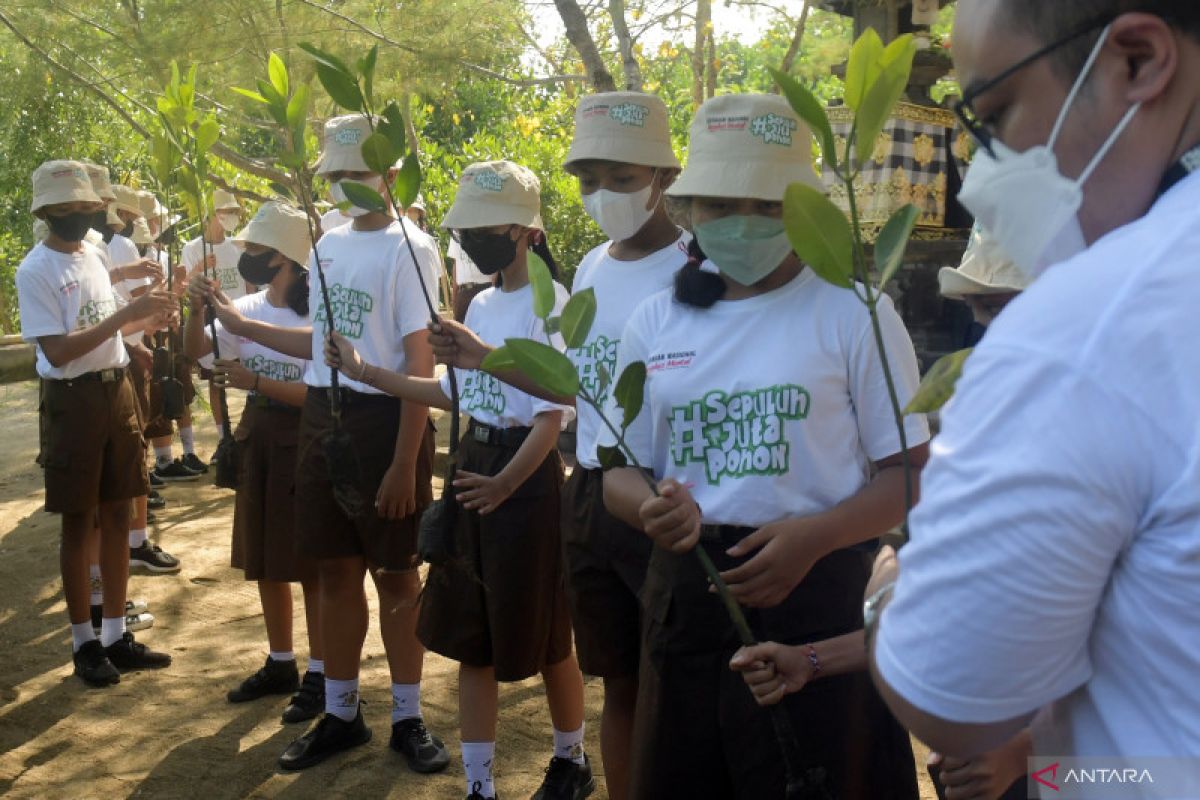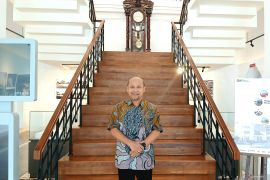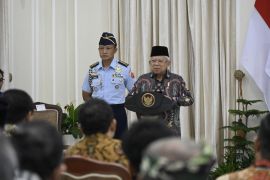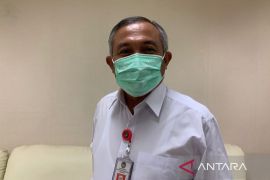According to Presidential Instruction Number 12 of 2016 on the National Mental Revolution Movement, the movement aims for national character improvement and nation-building by referring to the values of work ethic, mutual cooperation, and integrity.
The GNRM has been made one of the national priority programs as part of efforts to enhance human resource development to support the achievement of the 2045 Golden Indonesia vision.
Under the vision, Indonesia is aiming to become a country with the fifth largest per capita income of US$30,300, or equivalent to developed countries. It is also aiming to achieve a human capital index value of 0.75, among other things.
The movement emphasizes the importance of human resources gaining global-level competitiveness in terms of attitude, behavior, and mindset.
The Coordinating Ministry for Human Development and Culture, as the coordinator of GNRM, is continuing to strive to apply mental revolution values in the handling of priority issues, such as stunting reduction, extreme poverty reduction, and the revitalization of vocational education and training.
The National Mental Revolution Movement is essentially oriented toward impact and not results. Therefore, the key to the success of the movement is synergy and collaboration between stakeholders in its implementation.
Presidential Instruction Number 12 of 2016 outlines five main movements of the GNRM, namely the Serving Indonesia Movement, the Clean Indonesia Movement, the Orderly Indonesia Movement, the Self-Reliance Indonesia Movement, and the United Indonesia Movement.
The Serving Indonesia Movement focuses on improving the capacity of civil servants, increasing obedience, raising service standards (e-government), and implementing a system of rewards and sanctions along with setting leadership examples.
The Clean Indonesia Movement refers to the observance of clean and healthy lifestyles by families, educational institutions, workplaces, and communities, through activities ranging from integrated waste management to law enforcement of environmental cleanliness and health.
The Orderly Indonesia Movement aims for the orderly use of public spaces, the improvement of public space facilities and infrastructure, as well as the building of a friendly and violence-free attitude in families and communities.
The Self-Reliance Indonesia Movement pertains to efforts to achieve self-reliance in various sectors, starting from the role of cooperatives and micro, small, and medium enterprises (MSMEs) to the protection of intellectual property rights.
Meanwhile, the United Indonesia Movement focuses on increasing behaviors that support democratic life based on the state ideology of Pancasila, as well as increasing the role of religious institutions, families, and communities to nurture the values of character, tolerance, and living in harmony.
"If these five movements are implemented well and supported synergistically, it is highly possible that the goal of Golden Indonesia 2045 will be able to contribute to producing excellent humans," the deputy for coordination of mental revolution, cultural advancement, and sports achievement at the Coordinating Ministry for Human Development and Culture, Didik Suhardi, said.
In 2023, the Coordinating Ministry for Human Development and Culture, which is home to the GNRM national task force, has carried out several efforts through its Mental Revolution Work Showcase program as a form of information dissemination on the movement.
The program consisted of seminars and discussions aimed at providing recommendations for policies going forward. Some of its themes were "Resilient Coastal Areas for Advanced Indonesia" and "Towards Advanced Papua."
In addition, it also included various forms of action, including the Planting 10 Million Trees and the Nusantara Cultural Harmony Festival at the new national capital Nusantara.
Suhardi said that even though the Mental Revolution Work Showcase was carried out through various forms of programs, its ultimate goal was creating human resources who have integrity, strong work ethic, and the spirit of mutual cooperation in daily lives.
According to him, programs are only a medium. To create an advanced Indonesian society, improving the quality of human resources must be the goal of all programs.
"There are three points in our mental revolution spirit, namely improving work ethic, increasing mutual cooperation, and strengthening integrity," he said.
He also emphasized that mental revolution is not a program that will end after the current government's tenure ends. Rather, it has become a continuous and timeless movement.
"Do not think of it as a program of the current cabinet. Mental revolution is a necessity to make massive changes to all components of society so that we can achieve the 2045 Golden Indonesia," Suhardi remarked.
Challenges
A member of the expert team of the GNRM national task force, Alissa Wahid, said that the 2045 Golden Indonesia vision cannot be achieved without improving the quality of human resources.
She noted that currently, many people are still not aware of the mental revolution.
If, previously, the mental revolution was considered a movement to change everything, now the approach applied is strengthening the values of integrity, work ethic, and mutual cooperation to make the movement easier to understand.
"Thus, in practice, for oneself, it is integrity; for work, it is work ethic, and for social life, it is mutual cooperation," she said.
Speaking about obstacles, she said that coordination and synchronization in GNRM implementation are not yet optimal. There are still many programs and activities in ministries, institutions, and regions that do not reflect the values of the movement.
Corruption cases and a negative view of institutions indicate that the values of mental revolution have not yet been implemented. Ideally, state officials should set an example of the noble values promoted by the mental revolution.
Another member of the expert team of the GNRM national task force, Tri Mumpuni, shared a similar view. At the grassroots level, the mental revolution is only considered a government program, not a people's program.
However, it is a radical movement that must be carried out massively. She said she believes that it will be difficult if this spirit is driven at the level of the older generation. Thus, the key to realizing the mental revolution lies in promoting it among the younger generation.
Currently, the programs that she is targeting tend to involve young people more.
Mumpuni said that they are easier to develop and could become valuable assets for Indonesia in the future. She expressed optimism that with the presence of the younger generation with intellectual capacity and empathy, Golden Indonesia will not remain a dream.
Mental revolution is indeed a movement that must endure and be enforced. It must continue to run and fill every aspect of life, creating a society with integrity, a strong work ethic, and a spirit of mutual cooperation.
Related news: Mental revolution in families key for development: BKKBN
Related news: Ministry bolsters community involvement in Mental Revolution Movement
Editor: Rahmad Nasution
Copyright © ANTARA 2023












